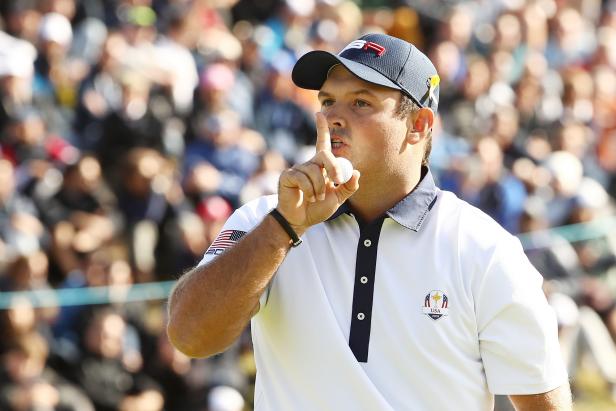Golf
The things golfers are not supposed to say out loud

This story first appeared in Low Net, a weekly newsletter dedicated to golf through the eyes of average players. The newsletter will be for Golf Digest+ members. To receive yours weekly sign up for Golf Digest+.
Last week, a PGA Tour player missed a five-foot putt that cost him the tournament, and he later cited the reason: He was nervous.
This wasn’t surprising to anyone who saw Akshay Bhatia pull his final par putt on the 72nd hole at Detroit Country Club, yet it still felt notable. Some things we’re told not to say out loud.
Bhatia was at least talking about himself, because the real sin is in what we might project onto others. During a round a few weeks ago, my buddy was two-under through 13 holes when a career round started coming into view. From then on, I knew not to even look him in the eye. The times I’ve flirted with an important barrier, I’ve walked away briskly from anyone who dared mention what was at stake.
I didn’t make up any of these rules, but I’m bound to them regardless, no different than a baseball player who will ice a pitcher flirting with a perfect game. You’re not supposed to talk about when someone is playing especially well. But it’s also not cool to point out when they particularly stink. To commend a partner for hitting every fairway is mostly an invitation for them to miss the next one. Yet it’s still better than calling a shot that veers dead right by its given name.
It’s fair to ask if these guidelines make any sense. Well, it depends, because they’re all based on the premise that you’re introducing a thought someone hadn’t already considered, or is perhaps trying to suppress. This is where it gets tricky. I’ve written before about the folly of avoidance, which is why Bhatia’s admission last week was such an evolved response for someone so young. The more energy you put into trying to ignore a thought, the bigger deal you’re making out of that thought in the process.
But again, that was Bhatia’s story to tell, and it began with him. It’s quite possible your playing partner know he’s playing well/hasn’t missed a fairway/just shanked one into a neighboring backyard. If he wants to talk about it, that’s one thing. Otherwise, this is one occasion we’re all supposed to play dumb.










